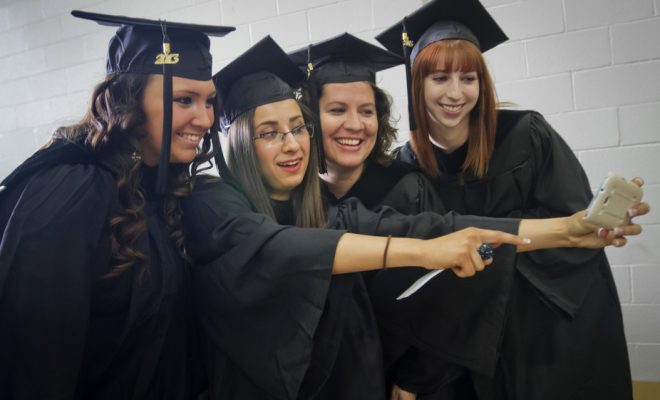Epidemic of rights abuse fails black kids across the US

**The Edvocate is pleased to publish guest posts as way to fuel important conversations surrounding P-20 education in America. The opinions contained within guest posts are those of the authors and do not necessarily reflect the official opinion of The Edvocate or Dr. Matthew Lynch.**
Noelle Witherspoon Arnold, University of Missouri-Columbia
As the world grapples with the containment of diseases such as Ebola, there is another epidemic that demands attentive responses, policies, and actions. It is one of grave proportions regarding the violation of basic civil and human rights in black communities across the United States. These violations end all too often in abuse, incarceration, and death.
Recent events in Ferguson after the death on August 9 of 18-year-old Michael Brown at the hands of white police officer Darren Wilson in the suburb of St Louis, Missouri, have brought this crisis into sharp focus.
There is no way to discuss what has happened in Ferguson without addressing systemic structural and institutional racism. This includes the politics of poverty that presents the poor as complicit in their own deaths, missed educational opportunities, and economic ceilings.
In Brown’s case, insinuation and innuendo suggested he had stolen goods from a store and was a “thug”. At the same time, a narrative regarding education developed that labelled Brown as yet another black, unmotivated student.
In fact, he managed to graduate from a high school with one of the highest rates of poverty, unequal resources, and violence in Missouri – all of which contribute to low student achievement, little social mobility and economic stagnation. Often these conditions reproduce cycles of generational poverty that are felt in Ferguson and other poor communities of colour. Despite this, Brown’s family indicated he was headed to college with aspirations of starting his own business.
What to tell the kids
Even though President Barack Obama gave a stirring speech on race in 2008, America still cannot talk about it. Having a black president has made race more visible, but no less difficult to discuss, particularly with our children and students. This failure has created a new generation of victims and violators.
In new research about educational inequity at Ferguson, University of Pennsylvania researcher Shaun Harper notes:
As is typical in moments of racial eruption in the US, there will be an inclination to swiftly move on – to treat Ferguson as an isolated, unfortunate event that came and went. I suspect that few P-12 [school] teachers there or elsewhere across our nation even know how to talk with children about what happened in the St Louis suburb and the larger implications of this tragedy.
In fact, one school district in Illinois has banned talk of the issues in Ferguson even though research has shown that black students personalise racism even when it is not personally happening to them. This stands in contrast to encouragement by teachers and politicians to discuss other tragedies such as 9/11, which spawned whole curricula on the subject. Students and educators deserve the truth.
In the case of the Ferguson-Florissant school district and others like it, Harper says that: “Ferguson had structural problems that systematically disadvantage black families and youth long before a white police officer killed an unarmed black teenager.”
Rebalancing inequalities in schools
Even as educational scholarship explores issues of social justice, there is little movement by those who create education policy in ameliorating inequities for those who have not been well served in schools. There must first be racial and cultural sensitivity, relevance, and awareness of institutionalised racist practices in schools.
Second, teachers must be trained with a commitment to understanding and creating diversity, inclusive practice in schools, and a fostering of social relations across cultures. In addition, there must be continual dialogue and supportive, safe spaces in which youth and communities can process what happened.
The “wronged” parties – in this case black communities – should be involved in school curricula and policy. Although the concept of social justice remains a somewhat inchoate idea, the black community has a long history built around the constructs of advocacy, justice, and social change in schools and communities.
A history of abuse
Ferguson is only the newest failure of the larger society to substantially address these issues. Growing up in Birmingham, Alabama, I know something about the impact of race and racism that manifests as a right to protest, demonstrate and protect oneself from harm. I recall an eerily familiar scene of 1960s: water hoses, now juxtaposed against current images of bullets and tear gas. These were crimes against humanity in heavy-handed shows of militarised force against those who dare to be wounded, fatigued, angered, and have the audacity to shine a spotlight on violence.
Brown’s funeral on August 25 drew a crowd of more than 4,000 to not only say goodbye, but also to show solidarity amid cries and tears for justice and restoration. Similarly, thousands attended the funeral of 14-year-old Emmett Till, who was lynched in 1955 Mississippi. Brown’s tale also has overtones of another St Louis period of unrest in 1968 at the unjust killing of another black man, Dr Martin Luther King.
And in this latest experience of déjà vu, the results are the same: the stripping of worth and humanity, the devaluation of the black life, and the criminalisation of youth of colour.
More than anything, Brown’s death has dispelled the myth of a post-racial world and revealed just how real racism is. It seems that “democracy requires hard work that we seem less and less willing to do”, a point argued by Yale law professor Stephen Carter his book Civility. Some would rather dehumanise and shame the victim of colour through misrepresentations, half-truths and outright lies than get down to that hard work.
__________
Noelle Witherspoon Arnold is the associate Professor, PK-12 Leadership & Policy at University of Missouri-Columbia
This article was originally published on The Conversation.
Read the original article.






